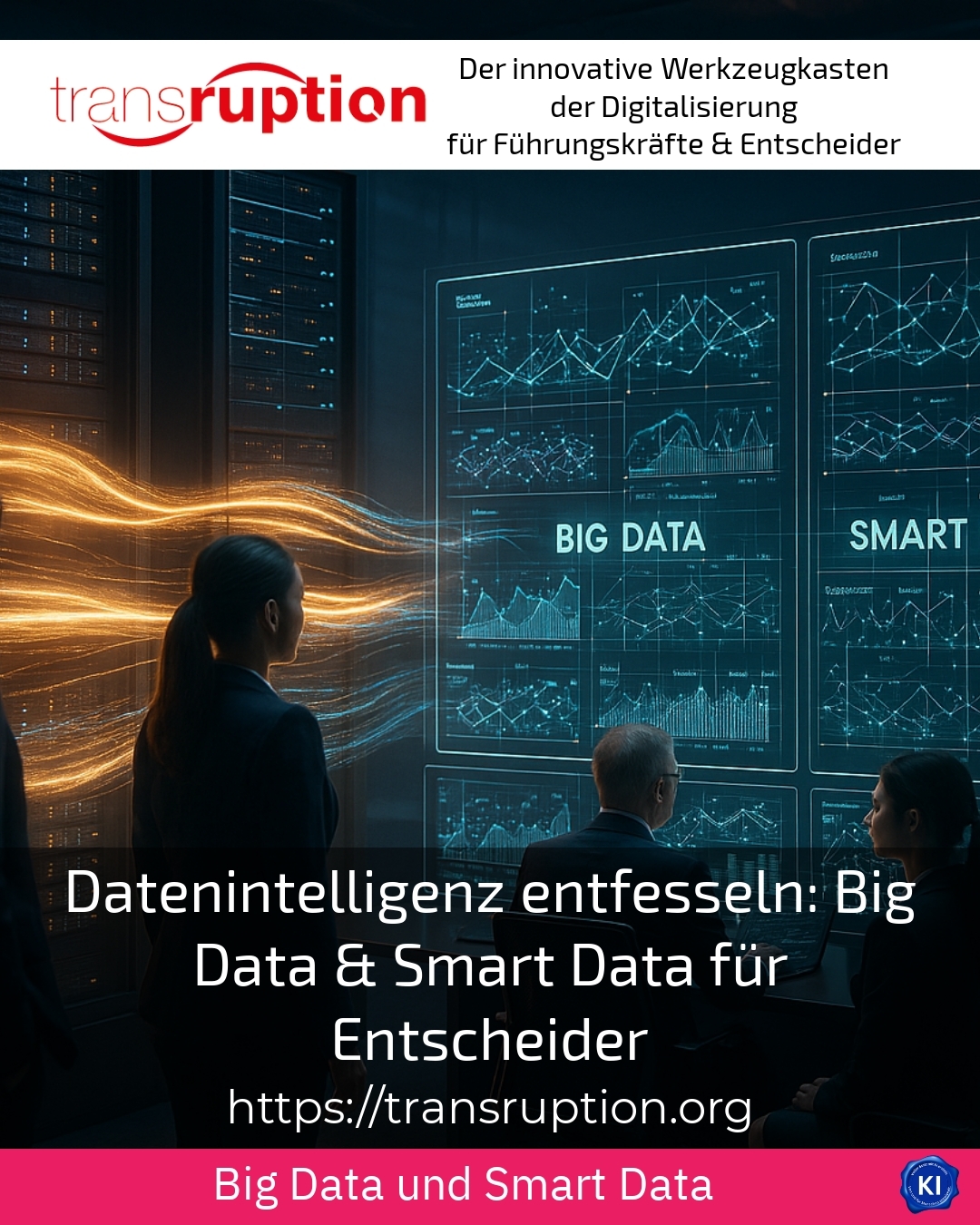In today's digital world, the term Data intelligence is becoming increasingly important. Companies in all sectors are focussing not only on collecting large amounts of data - known as big data - but also on processing it intelligently. The aim is to filter out high-quality, relevant information, which is known as smart data. Data intelligence supports decision-makers in making better, more informed decisions. In the following, you will learn how this change increases efficiency in companies and which practical examples result from it.
From abundance to clarity: an overview of big data and smart data
Many companies have huge amounts of data that are generated daily from a wide variety of sources. This includes both structured and unstructured data: from customer interactions and sensors to social media posts. Big data describes precisely this immense volume, which even exceeds the scope of conventional data processing[9][8].
However, the abundance of data can quickly become a challenge. This is where the smart data component comes into play: it refers to the carefully filtered and quality-checked information within this amount of data. Smart data is error-free, relevant and tailored to the respective context, which enables precise and efficient utilisation[1][5].
For example, a retail company can use smart data to filter out which products are particularly attractive to certain customer groups from its sales figures (big data) - and thus create more targeted marketing campaigns.
How Data intelligence Decision-making processes supported
A key advantage of the Data intelligence is that it enables decision-makers to channel the flood of information in a meaningful way and derive immediate recommendations for action. It is not only the quantity, but above all the quality and informative value of the data that are decisive for the sustainable management of business processes.
In the automotive industry, for example, smart data is used to monitor the condition of machines in real time. Only relevant sensor data is evaluated so that maintenance can be planned in good time and downtime minimised. This increases productivity and significantly reduces costs.
In the financial sector, too Data intelligence better risk assessments. Banks and insurance companies only analyse large volumes of data selectively in order to assess creditworthiness or detect cases of fraud.
BEST PRACTICE at the customer (name concealed due to NDA contract): We supported the project to introduce a data-based decision-making model at a medium-sized technology company. Active filtering and contextualisation of big data resulted in concrete smart data insights that significantly accelerated product development and reduced time-to-market.
Concrete impulses for action for managers
To Data intelligence effectively, it is advisable to observe the following steps:
- Clear definition of objectives: Only when it is clear which decisions are to be supported can the data focus be set precisely.
- Quality control and data selection: Not all information is relevant. Early filtering avoids excessive demands and bad investments.
- Integration of analytical tools: The use of AI and machine learning helps to recognise patterns and create forecasts.
In the healthcare sector, for example, patient data is analysed in order to develop personalised treatment recommendations. At the same time, such systems ensure data quality and data protection.
Smart data as a milestone in the transformation of companies
The transition from the mere collection of large amounts of data (big data) to the targeted use of smart data is a key step for many companies. While consumers in the retail sector often benefit from personalised recommendations, manufacturers use smart data to optimise production processes and make resource-efficient decisions.
A global logistics company reports that smart data has made route management more dynamic and cost-efficient. Only relevant information on weather, traffic volume and vehicle status is processed in real time.
As a result, even SMEs are succeeding in seeing their own data not as a burden but as a valuable resource. However, this development requires a cultural openness towards digitalisation and data analysis as well as appropriate training for employees.
BEST PRACTICE at the customer (name hidden due to NDA contract)
A service provider in the renewable energy sector used data-intelligent systems to make yield forecasts for wind farms more precise. This led to better investment decisions and a sustainable increase in performance.
BEST PRACTICE at the customer (name hidden due to NDA contract)
An international retailer implemented smart data analyses to evaluate customer behaviour in detail. This made it possible to create customised offers that increased customer satisfaction and improved the repurchase rate.
My analysis
The targeted use of Data intelligence enables companies to gain precisely the insights that are crucial from the wealth of information. The combination of big data and smart data creates a new quality of decision support. Decision-makers benefit from clear, relevant and promptly available data that both increases efficiency and supports innovation processes. Projects around Data intelligence We are happy to accompany you on this journey and provide you with lasting support and impetus.
Further links from the text above:
Difference Between Big Data and Smart Data - Esa Automation
Big Data vs Smart Data: the steps of the winning strategy
Big Data vs. Smart Data: Key Insights for Operational Optimisation
Big Data vs. Smart Data: Valuable Insights to Optimise ... - MaintainX
Big Data vs. Smart Data: Is More Always Better? - Netconomy
Big data vs. smart data - Dataversity
For more information and if you have any questions, please contact Contact us or read more blog posts on the topic TRANSRUPTION here.















